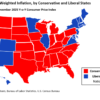Knudsen issues statement on court’s stay of Biden’s 1557 rule change

In a significant legal development, a federal court has granted Attorney General Austin Knudsen’s request to halt the Biden administration’s controversial new rule concerning gender-transition treatments. The rule, proposed under Section 1557 of the Patient Protection and Affordable Care Act (ACA), aimed to tie federal funding to compliance with mandates requiring healthcare providers to offer gender-transition medical procedures.
Attorney General Knudsen, who filed a lawsuit against the Department of Health and Human Services’ (HHS) rule in June, welcomed the court’s decision as a rebuke to what he termed the administration’s “lawless order.” The ruling blocks enforcement of the rule that would have compelled healthcare providers to perform gender-transition procedures on adults and children seeking such treatments, or risk losing federal funding.
“The Biden administration issued another lawless order and it was rightfully smacked down by the court,” Attorney General Knudsen asserted in a statement following the decision. “Forcing healthcare providers to perform dangerous and life-altering experimental procedures and burdening states with the cost is a step too far, especially when these treatments can cause irreversible damage, even to children.”
The court’s decision highlighted concerns over the federal government’s overreach, noting that Section 1557 of the ACA does not provide the authority to mandate or fund gender-transition treatments. The ruling underscores the ongoing legal battle over the interpretation and limits of federal healthcare mandates.
In response to the court’s decision, proponents of the rule have argued for the importance of nondiscrimination in healthcare access, particularly for transgender individuals seeking medical services. However, opponents, including Attorney General Knudsen and other states involved in legal challenges, contend that such mandates infringe upon medical ethics and states’ rights.
The lawsuit, jointly pursued by Texas and Montana, sought a stay or preliminary injunction to prevent what they described as irreparable harm resulting from the enforcement of the rule. The court’s granting of this request represents a significant victory for states challenging federal regulatory actions perceived as overstepping constitutional limits.
As the legal battle continues, stakeholders on both sides anticipate further developments that could shape the landscape of healthcare policy and federal regulatory authority in the United States.











